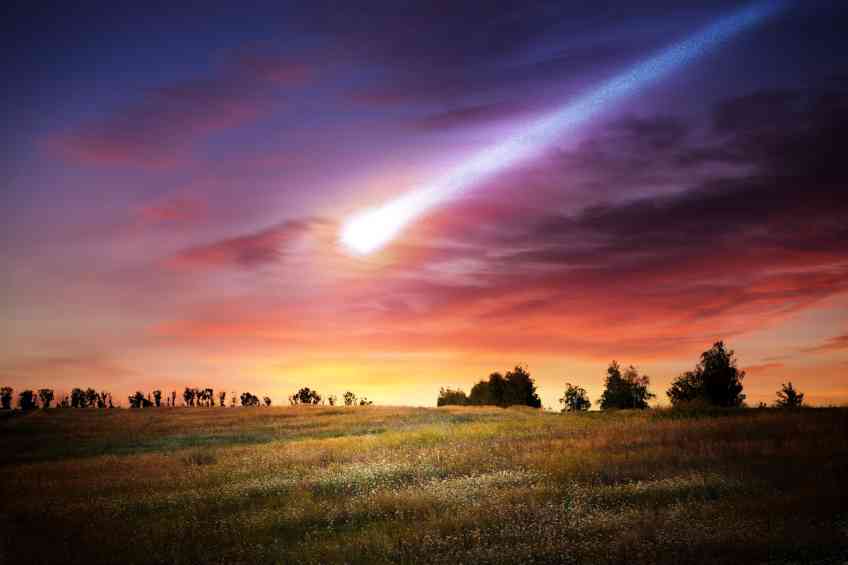By John Salak –
Think the world has enough problems, given the rise of rampant nationalism, the war in Ukraine, climate change and the pending rule changes to major league baseball? Think again. Earth gets hit with about 17,000 meteorites each year.
According to Iberdrola, a forward-thinking energy group, the vast majority of these hits are little more than dust bits or almost invisible particles by the time they hit the surface. Still, it seems like it wouldn’t take a lot of large meteorites to get through the atmosphere intact to stir things up in an unpleasant way, à la movies like Deep Impact and Armageddon.
These flix are pieces of fiction designed to build suspense and Box Office revenue. But their premise isn’t totally out of the question if recent and distant history is any guide.
In mid-February, residents of Hidalgo County in Texas, for example, reported a loud explosion that local officials attributed to a meteorite strike. While the exact location of the hit is still unknown, two pilots flying near Houston claim they spotted the meteorite on its way down. The National Weather Service in Brownsville also detected an apparent hit.
Fortunately, there were no reports of injuries or damage from the Texas smackdown, but that doesn’t mean similar incidents in the past didn’t wreak havoc. Just ask the dinosaurs if you can find any. If not, a report from Newscientist.com should help.
It cites, among other hits, the Chicxulub meteorite that stuck Mexico 65 million years ago. Up to nine miles in length, this enormous smackdown led to tsunamis, fires, earthquakes, and atmospheric changes to kill up to 70 percent of the life on Earth.
The Chicxulub hit may have been the rarest of rare motherloads of meteorites, but there have also been lesser but still significant hits, some as recently as 15 to 20 years ago.
In 2013, for example, an asteroid about 20 meters in diameter exploded in the atmosphere above the Russian city of Chelyabinsk with the power of 500 kilotons of TNT.
About a century earlier, in 1908, a 30-meter-diameter asteroid exploded above the ground in Tunguska, Russia, knocking down approximately 80 million trees over 830 square miles. The explosion is estimated to have been 1,000 times more powerful than the atomic bomb on Hiroshima. Thousands of people could have died if the hit occurred over a city instead of a remote part of Siberia.
These more recent hits don’t touch on the prehistoric explosions like, among others, the one that created the Vredefort crater two billion years ago in South Africa or the Hoba meteorite that landed in Namibia about 80,000 years ago.
While admittedly rate, are there safety options to take in the face of planet-shaking meteorites hitting Earth? Probably, not. Survival may be up to random chance.
“If you make camp on the right continent, in the right environment, and you seek out the right kind of shelter, at the right altitudes, at the right times, you might stand a chance,” climate scientist Charles Bardeen told Wired magazine in 2021.













